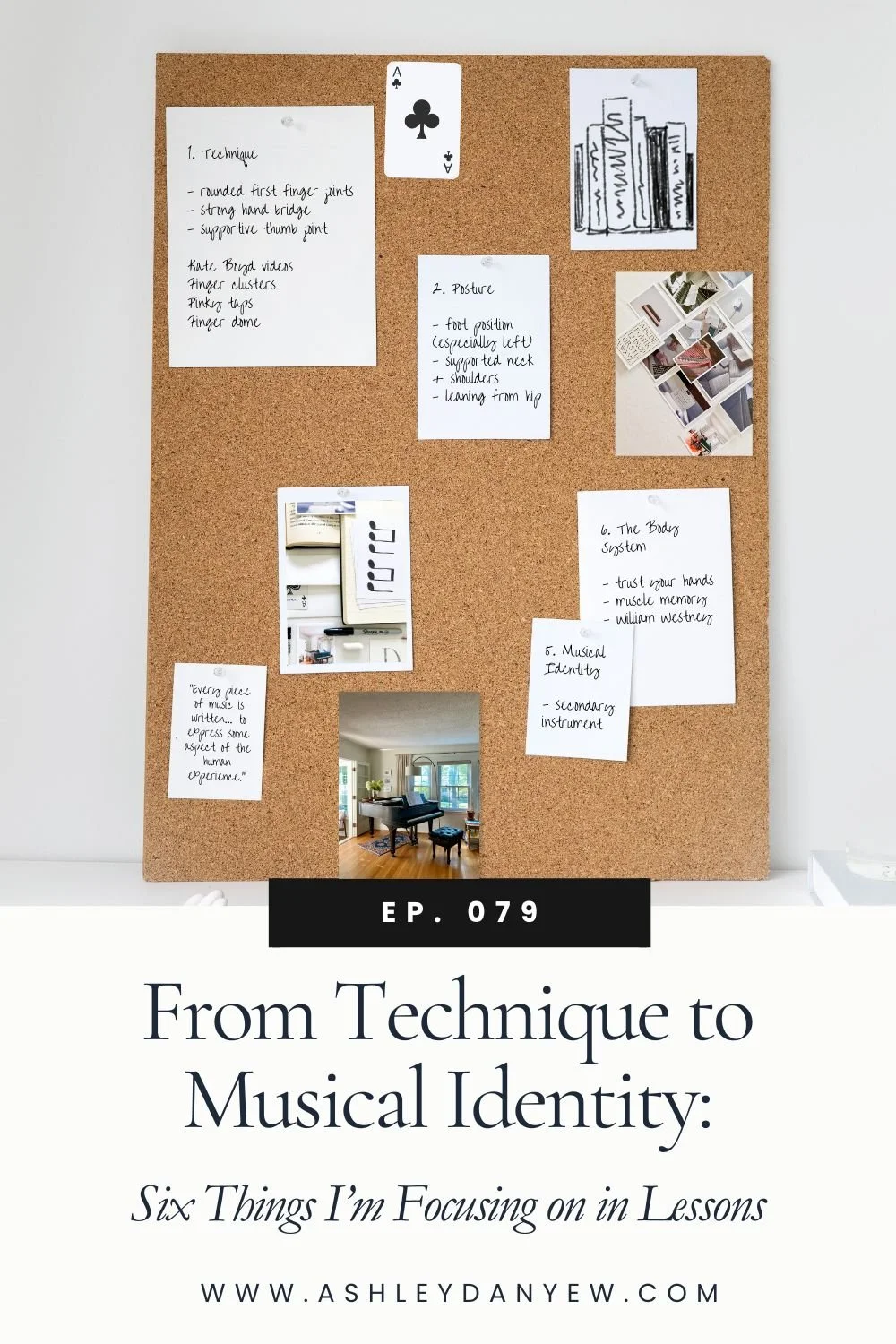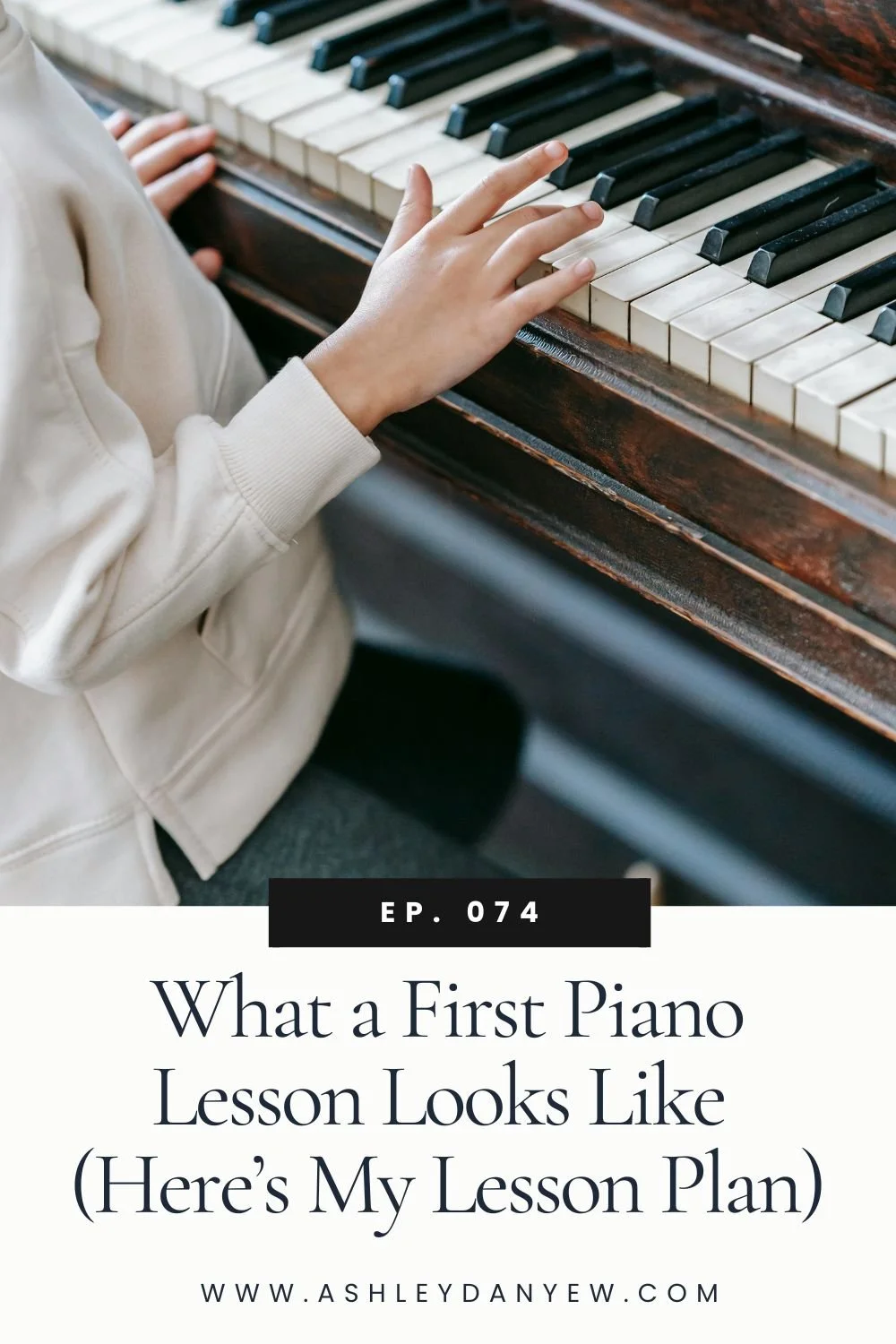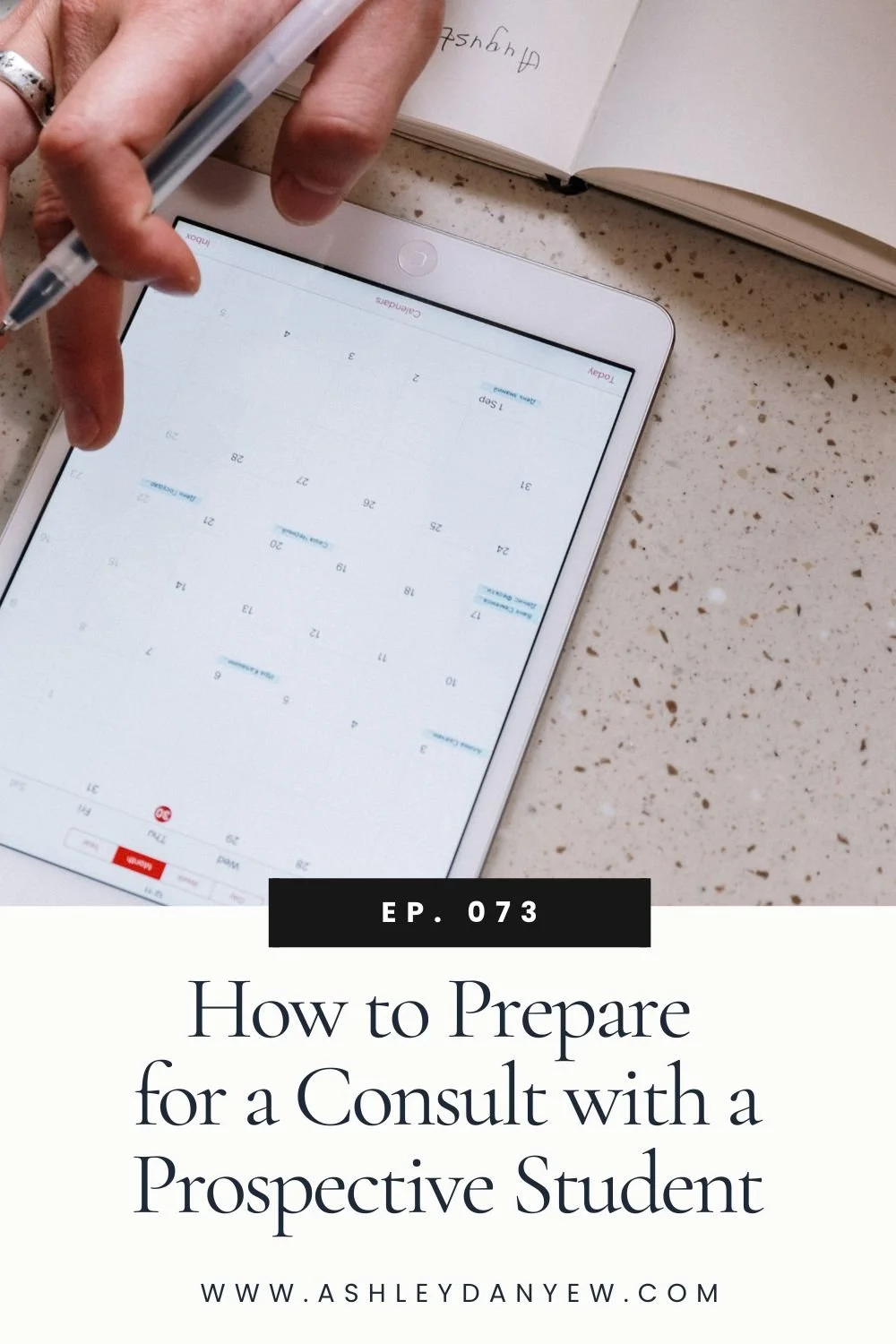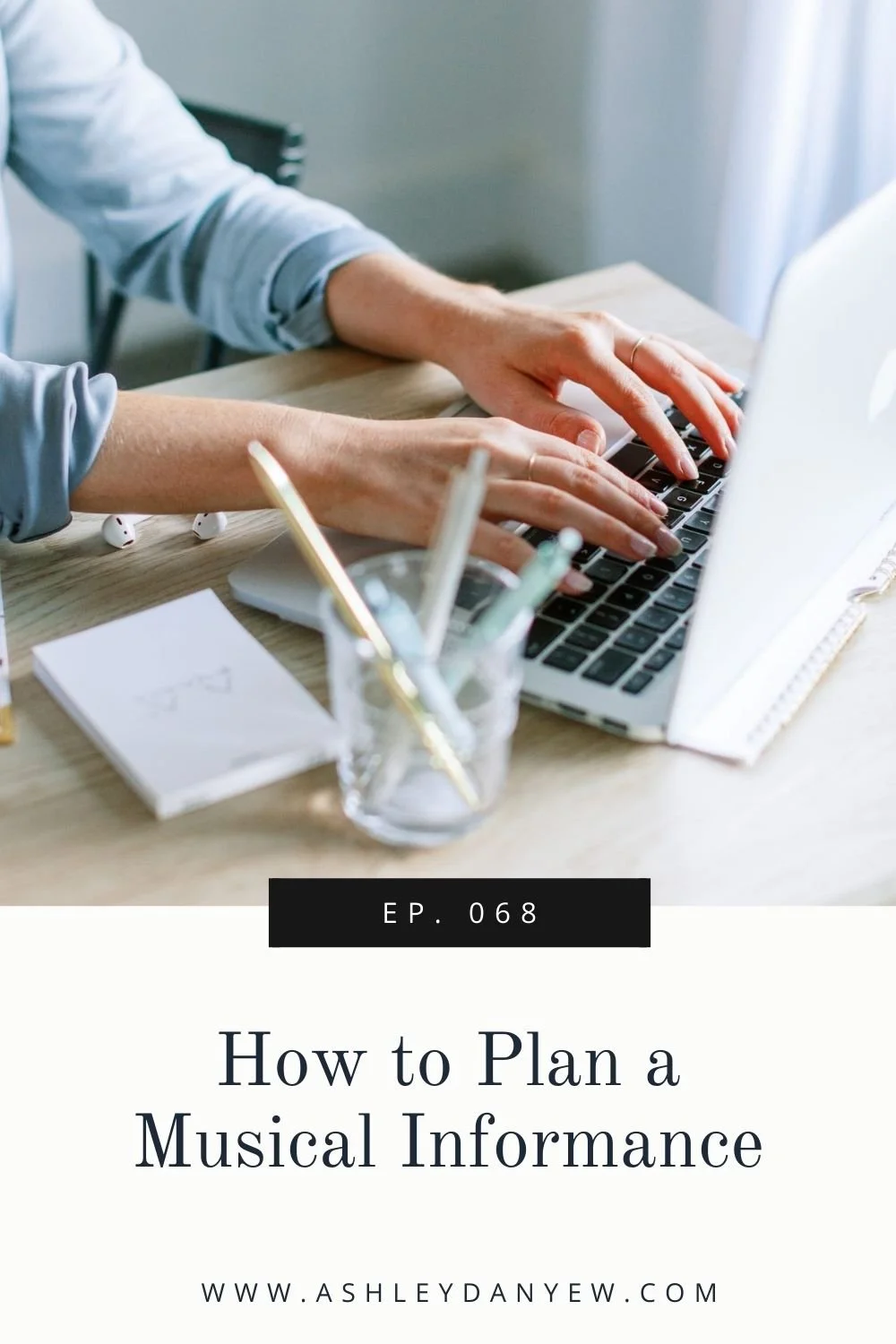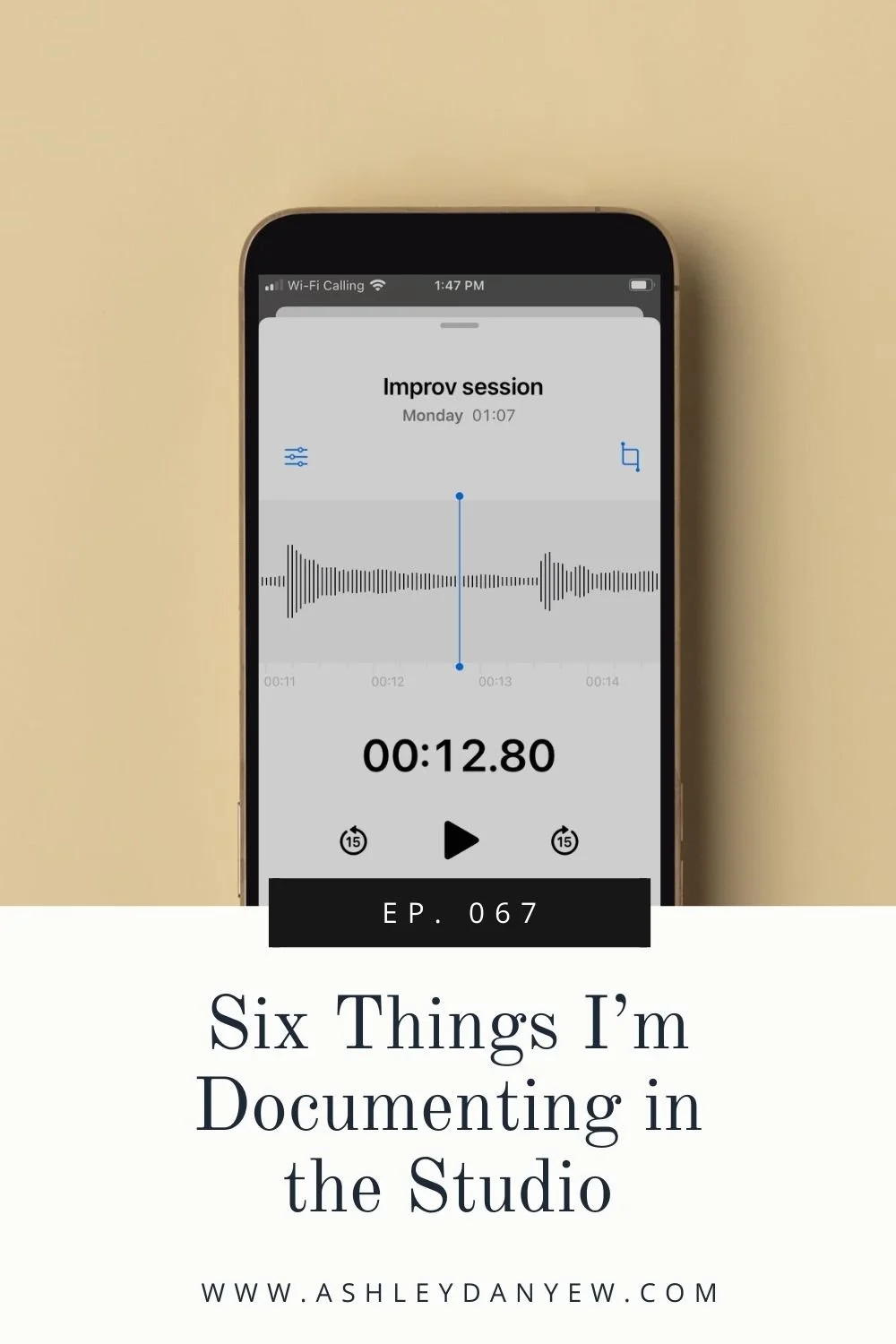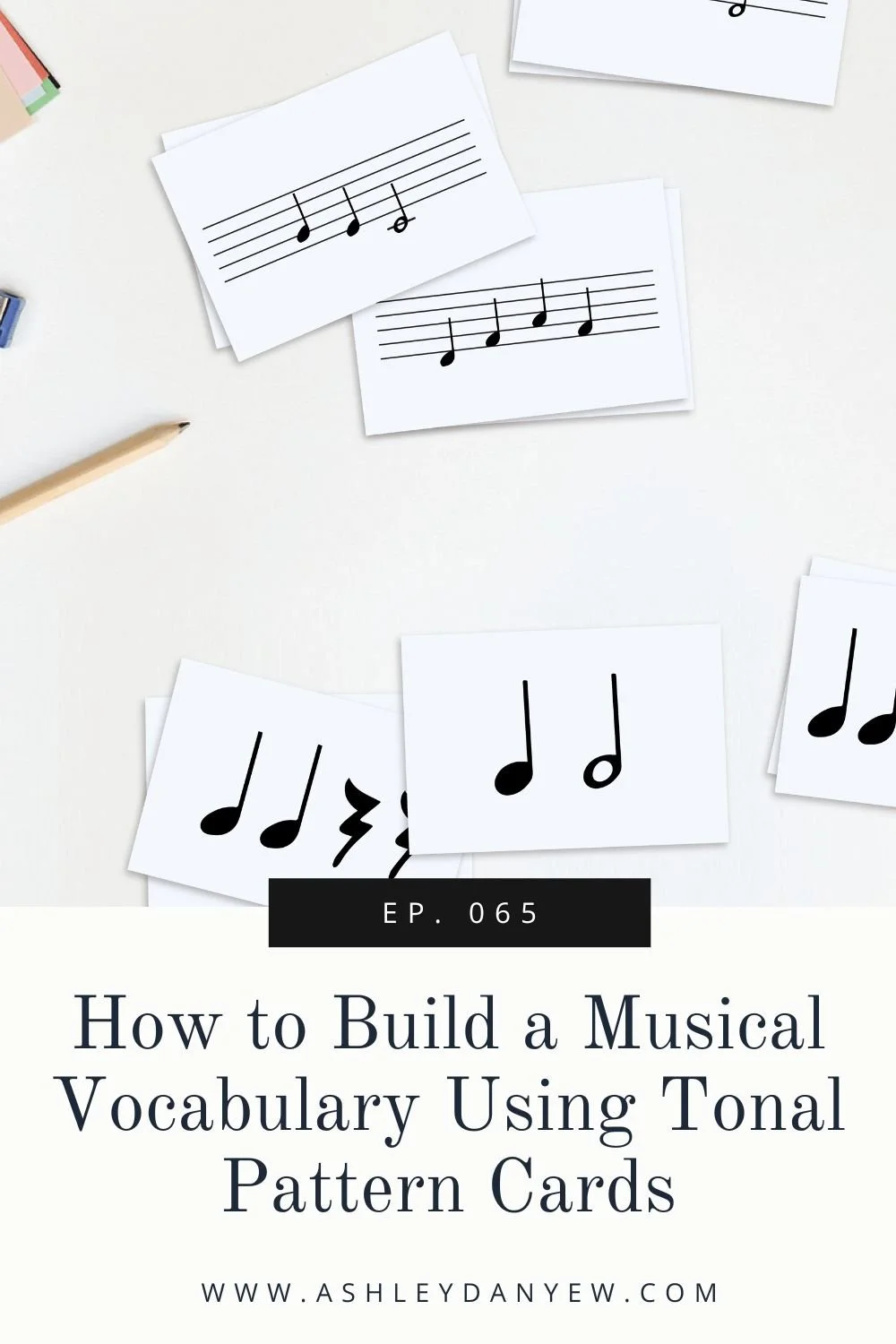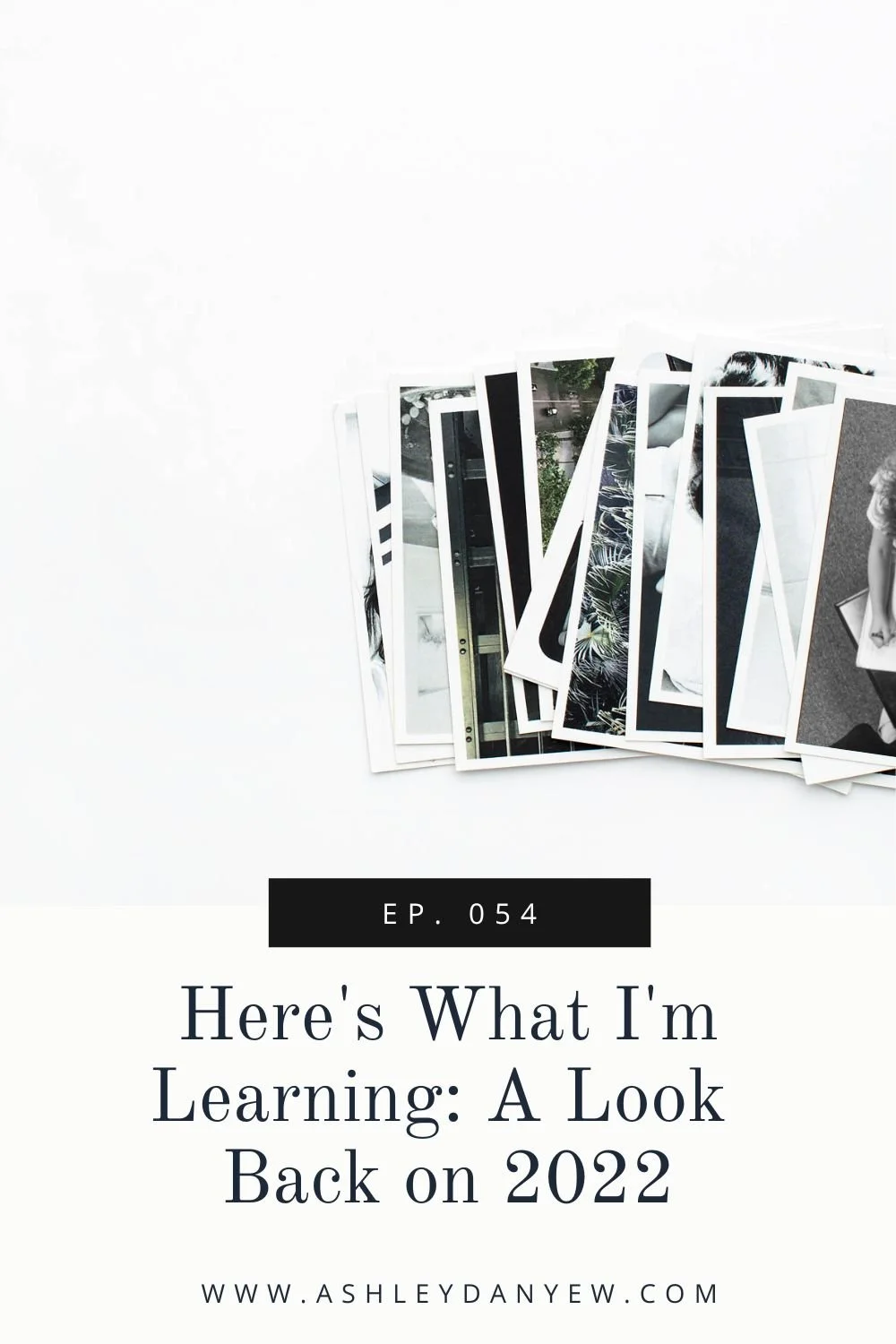Resources Mentioned
“I Make Music Because…”
Hi friends — happy summer!
Today's episode is a special one because for the first time on this podcast, you'll hear someone other than me talking. In fact, you'll hear 22 other voices — my students!
But first, let me back up and give you a little context.
Last year during the first few months of the pandemic, I shifted my studio online like the rest of the world. My students were in the midst of preparing for our annual end-of-year recital and I began researching ways to facilitate a meaningful online performance to share with parents, friends, and family members. I knew it would be different than normal, so I was looking for another element to add in — something we don't normally do.
A few weeks later, I was attending a webinar for piano teachers hosted by the Frances Clark Center. Anna Beth Rucker, a piano teacher, researcher, and arts administrator based in Ann Arbor, Michigan, shared a project she did with her students for their virtual recital a month before called "I Make Music Because..." She asked each student to record themselves finishing this statement and then compiled them into a video to share at the beginning of the YouTube recital playlist.
I knew this would be a special addition to our virtual recital and a great way to encourage my students to reflect on why they make music.
I loved how it turned out last year, so much so that we did it again as a studio this year. And that's what I'm going to share with you today.
When was the last time you paused to really think about the why behind your work?
Why did you choose music?
Why did you choose to teach?
Why is this work important to you?
As educators, we recognize the value of reflection in the learning process. We understand that it's important to the development of independent, self-regulated musicians and their musical practice.
When I first introduced this project to my students, I was met with a lot of blank stares. I can't blame them, really. I wasn't sure how I would finish that statement without giving it some thought.
But that's the point, isn't it? It requires some deep personal reflection. And sometimes, that means asking more questions.
I talked about the importance of asking questions back in Episode 020. Asking the right kind of questions has the potential to cultivate rich learning experiences, develop a deeper understanding of a particular skill or concept, and perhaps most important, lead students to begin asking questions of their own.
The more questions you ask, the more you can get to the heart of what's important to you, why you do it, and what it means.
Socrates once said, “I cannot teach anybody anything, I can only make them think.”
So this year, in the weeks leading up to making recital videos, I spent some time in each lesson giving my students space to think and ponder their responses. We discussed their past experience. I gave some examples of things that might resonate with them. And I asked a few more specific questions to help them dig a little deeper.
“I cannot teach anybody anything, I can only make them think.”
Here are a few questions to ask yourself or your students:
What does music mean to you?
Why do you play your instrument?
Why did you choose it?
What do you love about it?
How does it make you feel?
What difference do you hope to make with your music?
When I asked these questions in lessons, I saw a level of deeper reflection and contemplation take place. My students paused to think, to analyze, to reflect and this led to a variety of thoughtful, unique responses.
Everyone's experience is different, right? We have different answers to these questions and by accessing those deeper, more specific insights and meanings within ourselves, we find a response that is personal and specific to us.
Now yes, you'll hear that some students still said, "I make music because it's fun" — the go-to response. And that's perfectly valid. But you'll also hear some very specific responses that were the result of this more thoughtful reflective process.
Why is this important?
Because developing these cognitive skills, learning how to access this deeper level of reflection builds self-reliance, self-regulation, and independence — all skills that are important to developing as a musician, creator, and artist. We need to teach our students how to think for themselves, how to analyze their own thoughts and processes and approaches. How to connect parts of themselves and their experiences to the music they create.
Here's what my students shared in our video this year:
I make music because…
“I like playing piano because it makes me happy.”
“I like making music because it helps me express myself.”
“I like making music because it’s exciting to listen to and create.”
“The reason I like making music is ‘cuz sometimes I just like to express my feelings with music and I like playing the piano.”
“I like playing piano because I enjoy making music.”
“I like music because it makes me feel good.”
“I make music because I’m good at it and it makes me happy and I like listening to it.”
“I make music because I love the way a piece can be interpreted in an infinite number of ways and still have a backstory behind each one of those interpretations.”
“I make music because I like playing my Narwhal pieces.”
“I like making music because it sounds nice.”
“I like to make music because it challenges me and I like the way it sounds.”
“I make music because it makes me happy and it brings me joy.”
“I make music so I can become better at making music.”
“I make music to explore my creativity and because it’s a lot of fun.”
“I like making music because it’s stress-relieving.”
“I make music because it’s fun and relaxing.”
“I play piano because I like the sound of it.”
“I like making music because it’s fun!”
“I make music because it’s fun for me and it’s entertaining and it makes me really happy.”
“I like making music because I can be as creative (or uncreative) as I want and it’ll never be something I have to stop.”
“I make music because it calms me and it makes me happy.”
“I make music because it is fun.”
Conclusion
I hope this project inspires you to ask your students these kinds of thoughtful, reflective questions from time to time. But I also hope it encourages and challenges you to ask these questions of yourself.
Why do you make music?






